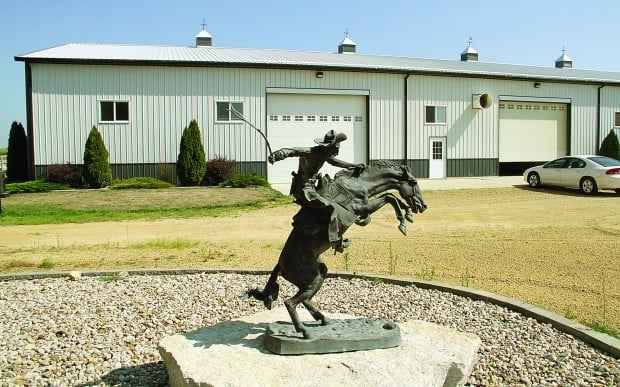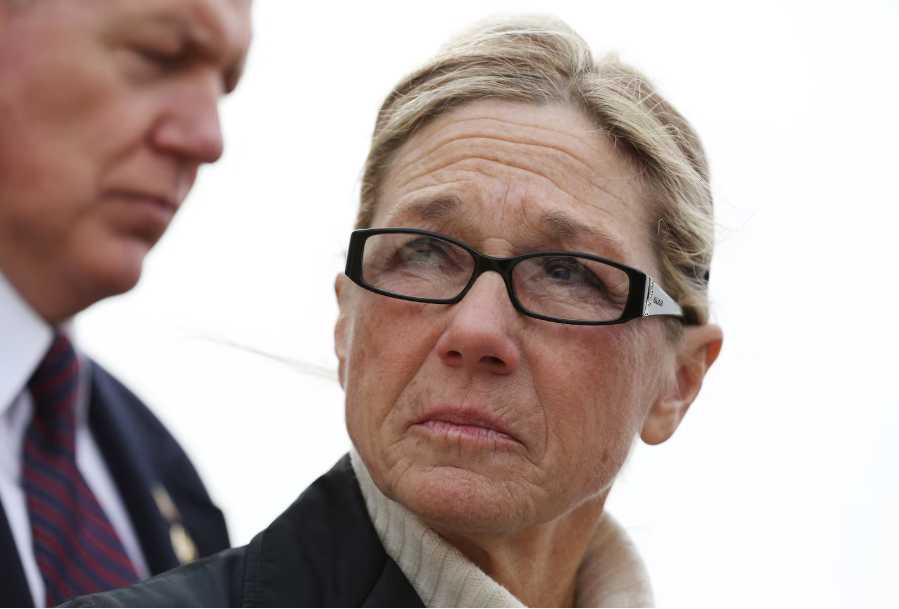Rita Crundwell: Where Is the Scammer Now? Dixon, Illinois, was a small town of only 16,000 people that was best known for one thing: being the home of former President Ronald Reagan. Things took a shocking turn for the town’s reputation in 2012, when it came out that one of its own had stolen $53.7 million over 22 years. Rita Crundwell, who was treasurer and comptroller of the city, stole from the people who trusted her.
In a world where trust is very important, Crundwell’s story is a scary reminder that even the most trustworthy jobs can be home to the sneakiest fraud. This is the story of Rita Crundwell and how she lied her way into a lavish, dishonest empire that she used to cheat a whole town out of money. People who work in criminal and financial justice still talk about her story of scandal, betrayal, and ultimate downfall.
Laci Mosley digs deeper into this interesting case in the first episode of Scam Goddess, showing how Crundwell’s fraud happened over many years. Mosley talks about how Crundwell’s love of horses led to one of the biggest thefts from a city in U.S. history. The episode goes into more detail about Crundwell’s plan and the people who finally found out about it. But what did Crundwell do after she was arrested? This article goes into more detail about her rise to power, her crimes, and the things that happened afterward.
A girl from a small town who has big plans
Rita Criswell Humphrey was born in 1953 and grew up on a farm near Dixon, Illinois. She was born into a poor family as the daughter of Ray and Caroline Humphrey. Crundwell was a young woman with big goals. In 1978, she became interested in American Quarter Horses, which was the start of a journey that would lead to her rise in local government.
In 1974, Crundwell married Jerry L. Crundwell, who worked as an engineering technician. They stayed married until 1986, when they got a divorce. She worked as a secretary for the mayor of Dixon at this time. But her big break came in 1983, when she was made city treasurer and comptroller. This gave her access to the town’s money and set the stage for the crime she would commit later.
People looked up to Crundwell as a model of civic duty for almost 30 years. The people who run the city praised how well she handled Dixon’s money. In fact, by 2011, one city commissioner said that Crundwell handled public money like it was her own. There was no way for them to know that Crundwell was planning one of the most complex theft schemes in U.S. history.
The Rise of the Horse Empire
From the outside, Rita Crundwell looked like a happy and successful government worker. The business she ran to breed Quarter Horses looked like a good way to make money on paper. But as her money grew, so did her extravagant way of life. As Dixon’s comptroller, Crundwell made $80,000 a year, but she started spending money on things that were way above her pay grade. She bought expensive cars, a $2.1 million motorhome, and even more than one house. She looked rich, but her real source of wealth was hidden: she stole from the city.
Crundwell opened a secret bank account in 1990. It was called the “Reserve Sewer Capital Development Account” (RSCDA). She was the only one who could sign for this account, and for the next 22 years, she would steal money from the city’s coffers and put it in this hidden account. Crundwell’s method was pretty easy to understand and work very well. She would make fake bills from the state, put money from the city’s Capital Development Fund into her own account, and then write herself checks from the fund.
The most money Crundwell ever stole was $5.8 million in 2008, which was an all-time high. The city of Dixon was having a hard time with budget cuts, lost services, and infrastructure that was breaking down. The city’s department for fixing streets was cut down, and people noticed that their neighborhood wasn’t getting better or better. At the same time, Crundwell was living a lavish life. She bought horses, homes, and a motorhome for millions of dollars.
The Slow Burn of Discovery
Even though Crundwell spent a lot of money, she was able to keep up her lie for years. Dixon residents mostly didn’t know what she was doing because they thought she was rich or that her horse business was making money on its own. The Great Recession in 2008 was the first time that people started to doubt things. As the city’s money problems got worse, Crundwell said that the state was behind on paying its fair share of taxes. This was an easy way to explain away the city’s money problems.
For some time, though, the city’s financial auditors missed signs that something was wrong. Outside audits didn’t get much attention in small towns like Dixon, and Crundwell was in charge of almost all of the city’s finances for most of her time there. Because no one was watching, she was able to keep stealing without getting caught.
It all fell apart, though, in the fall of 2011. The hidden account was found by Kathe Swanson, Crundwell’s coworker who was filling in as acting comptroller while she was on vacation. Swanson told Dixon’s mayor, James Burke, about it, and Burke called the FBI. After that, federal agents looked into Crundwell for months to build their case against him.
The Arrest and Sentence
When Crundwell got to work on April 17, 2012, FBI agents were already there to greet her. That same day, she was arrested and later charged with stealing $30 million over six years. After some time, a new indictment showed that she had actually stolen $53 million during her whole scheme.
Crundwell was accused of money laundering and wire fraud. In November 2012, she admitted that she had used the stolen money to run her horse-breeding business and pleaded guilty to a single count of wire fraud. Crundwell had to give up more than $53 million in cash, assets, and property, including her horse ranch and 300 horses. However, prosecutors found that Crundwell had been stealing since 1988, when she took $25,000 from the Dixon Sister City program using fraud.
In February 2013, Crundwell was given a federal prison sentence of 19 years and 7 months. Putting her love of horses over the safety of a whole town was a very serious crime, and this sentence was almost the maximum punishment. Dixon was having a hard time with money because of what Crundwell did. Over the past ten years, the city had lost millions of dollars in operating funds.
The Aftermath and Release
Dixon was devastated when Crundwell stole money from him, but the city did get better. When Crundwell’s horses and property were sold, they brought in over $9 million. The auditors and bank of Crundwell, who failed to spot the fraud, also paid the city $40 million as a settlement.
Crundwell did his time in a federal prison in Waseca, Minnesota, that had minimum security. She was supposed to be freed in 2030, but in 2020, she asked for compassionate release, saying she was sick. In 2021, she got out of jail early and was sent to a residential reentry center. In 2024, President Joe Biden commuted Crundwell’s sentence, which meant she would spend even less time in jail.
Rita Crundwell’s story is a stark reminder of what terrible things can happen when power is not checked or when there is no oversight. For decades, she stole millions of dollars from a small town. This shows that even the most trusted public officials can become greedy. Crundwell’s case is still used as a warning for people in power, and it reminds us all how important it is to be careful to keep the public’s trust.
Rita Crundwell’s criminal empire wasn’t just about the money, as Laci Mosley shows in Scam Goddess. It was also about living a life she could never have afforded without lying. Now that she is free again, the question still stands: will she ever really have to deal with the effects of what she did? Time will tell.
Read More: Unstoppable (2024): Where is Anthony Robles Now? The Inspiring Journey of a Champion Wrestler














